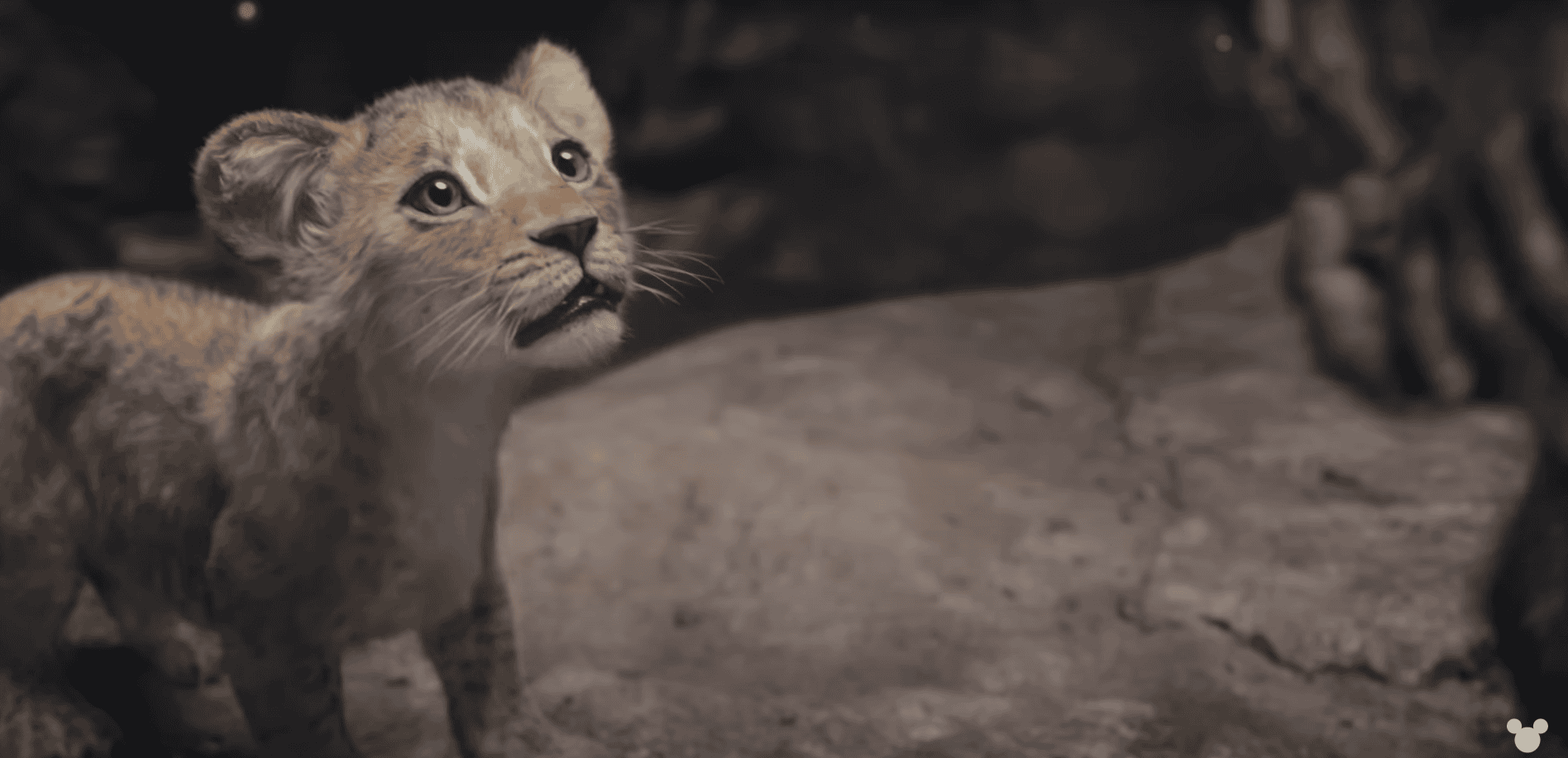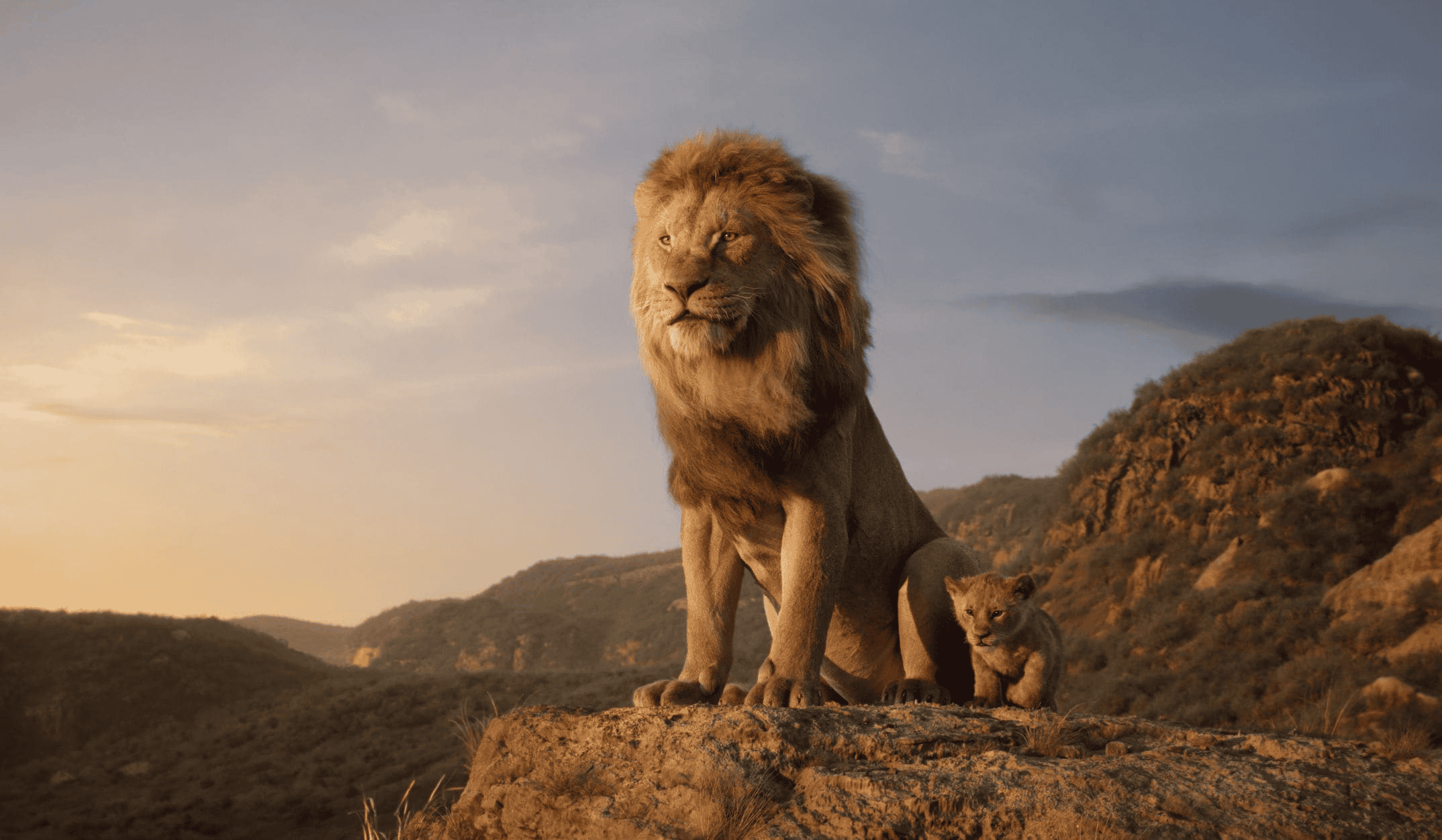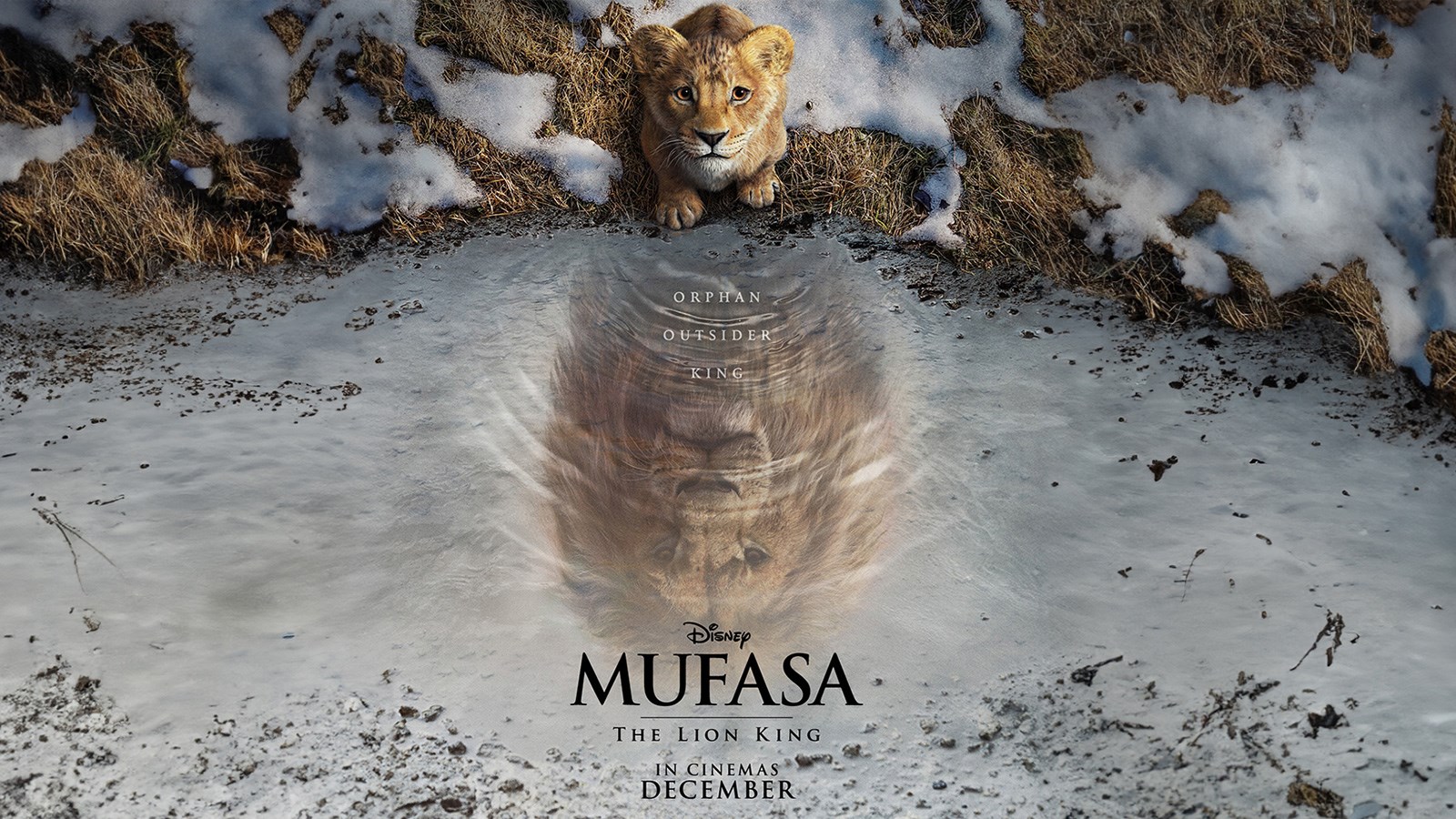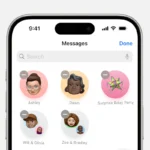Disney’s latest installment in the Lion King franchise, “Mufasa: The Lion King,” is a prequel that tells the story of Mufasa and Scar. So far, it has received mixed reviews from both critics and fans. Many viewers have commented on the film’s stunning visuals and well-executed music, thanks in part to Lin-Manuel Miranda. However, some have found the movie boring at times, feeling that the story lacks the memorable appeal of previous Lion King films.
The movie was released in theaters on December 20, 2024, and currently holds a 56% critics score on Rotten Tomatoes. Directed by Barry Jenkins, this prequel-sequel hybrid explores Mufasa’s origin story while continuing the narrative from the 2019 remake. The film’s reception echoes that of its predecessor, the 2019 photorealistic remake of “The Lion King.” Critics have praised its visual spectacle and technological achievements, but some feel that the storytelling is lacking.
Additionally, the film pays tribute to the late James Earl Jones, the original voice of Mufasa, and introduces new characters alongside familiar favorites, voiced by Donald Glover and Beyoncé.
Despite mixed critical reception, “Mufasa: The Lion King” may still perform well at the box office. The 2019 film faced similar reviews but grossed over $1.6 billion worldwide. Disney’s marketing power and the franchise’s popularity could drive audience interest, regardless of critical opinions.
Exploring the Reception of Mufasa: The Lion King
Critical Reception: A Mixed Bag
Critics have offered various opinions on “Mufasa: The Lion King.” Some praise its visuals and Barry Jenkins’ direction. They find it a charming film, especially for younger audiences. Others find it lacking the emotional depth of the original. They argue it relies too heavily on explaining backstory. This, they say, weakens the magic of the original story. Some critics even found it bland, despite the talent involved in its production.
On Visuals/Direction: “Barry Jenkins has crafted a visually stunning film, with breathtaking landscapes and impressive animal animation.”
On the Story/Prequel Nature: “While visually impressive, ‘Mufasa’ suffers from prequelitis, over-explaining aspects of the original story that were better left to the imagination.”
On Emotional Impact (Negative): “Despite the technical achievements, ‘Mufasa’ lacks the emotional core that made the original ‘Lion King’ so resonant.”
On the Music (Negative): “The new songs, while pleasant enough, fail to reach the heights of the original soundtrack, lacking the same emotional punch and memorability.”

Fan Reactions: Echoing the Critics
Fan reactions mirror the mixed critical reception. Many agree the animation is stunning. Some fans were moved by the story. They enjoyed seeing Mufasa’s origins. Other fans found the film unnecessary. They felt it lacked the magic of the first film. A common concern is the film’s attempt to explain too much of the “Lion King” universe. This, some believe, takes away from the original’s mystery.
On Visuals/Animation (Positive): “Many fans have praised the film’s stunning visuals, with some comparing the animation quality to that of ‘Avatar.'”
On the Story (Mixed): “While some fans found Mufasa’s origin story compelling and emotionally resonant, others felt it was unnecessary and didn’t add much to the original narrative.”
On the Music (Mostly Negative): “A recurring complaint among fans is the quality of the new songs, with many finding them forgettable and not on par with the original’s iconic music.”
On Scar’s Motivation (Negative): “Some fans expressed disappointment with Scar’s transformation, finding his motivation for betraying Mufasa unconvincing.”

Key Points of Contention
Several specific aspects of the film have drawn both praise and criticism:
The Music
The music, created by Lin-Manuel Miranda, has been a major point of discussion. Some find the new songs forgettable. They believe they don’t live up to the original’s iconic soundtrack. Others enjoy the music. They think it fits the film well. The song “I Always Wanted a Brother” has received some positive attention.
Scar’s Transformation
Scar’s (Taka’s) shift into villainy is another debated topic. Some viewers find his motivation weak. They think jealousy over a girl isn’t a strong enough reason for his actions. Others say the film shows more than just jealousy. They argue it shows a build-up of resentment and insecurity.
Prequel Tropes and Over-Explanation
Many feel the film falls into common prequel traps. It explains details that didn’t need explaining, like how Rafiki got his staff or how Pride Rock was formed. This, they say, makes the “Lion King” world less magical.
Timon and Pumbaa
The comedic duo of Timon and Pumbaa also drew mixed reactions. Some found their fourth-wall-breaking jokes out of place and disruptive.
Comparing “Mufasa” to Other Lion King Films
Many viewers naturally compare “Mufasa” to the original animated “Lion King” and the 2019 “live-action” remake. Here’s a quick comparison:
| Film | Strengths | Weaknesses |
|---|---|---|
| Original Animated “Lion King” (1994) | Iconic music, powerful story, memorable characters, emotional depth | Traditional animation may seem dated to some |
| “Live-Action” Remake (2019) | Visually stunning, realistic animation | Lack of emotional expression in characters, similar story to original |
| “Mufasa: The Lion King” (2024) | Visually impressive, explores Mufasa’s backstory | Relies on prequel tropes, mixed reception to music, some plot issues |
Is “Mufasa” Worth Watching?
Whether “Mufasa: The Lion King” is worth watching largely depends on your expectations. If you are seeking a film that captures the magic of the original, you might find yourself disappointed. However, if you’re interested in exploring Mufasa’s backstory and appreciate visually impressive animation, you may enjoy it. It’s important to approach the film with an open mind and form your own opinion.
“Mufasa: The Lion King” also showcases the evolution of animated storytelling. The original “Lion King” featured traditional 2D animation, which allowed for more expressive characters. In contrast, the 2019 remake and “Mufasa” utilize photorealistic CGI. While this creates stunning visuals, it can sometimes limit emotional expression. Each animation style has its own strengths and weaknesses, making it intriguing to see how these different approaches influence the storytelling.
Why the Story Continues To Be Popular
The Lion King’s enduring popularity comes from its powerful themes. These themes resonate with people of all ages. Some of the most important themes include:
- Family: The bond between Mufasa and Simba, and the loss of a parent, is a central theme. This resonates with many people’s own experiences.
- Destiny and Responsibility: Simba’s journey to accept his destiny as king is a key part of the story. It explores the idea of responsibility and finding one’s place in the world.
- Betrayal and Forgiveness: Scar’s betrayal of Mufasa is a dramatic turning point. The story also explores the theme of forgiveness.
- The Circle of Life: This core concept emphasizes the interconnectedness of all living things. It highlights the balance of nature.
Music also plays a vital role in the Lion King’s success. The original soundtrack, composed by Elton John and Tim Rice, is iconic. It includes songs like “Circle of Life,” “Hakuna Matata,” and “Can You Feel the Love Tonight.” These songs are not only catchy but also enhance the story’s emotional impact. They have become classics in their own right. The stage musical also features powerful music. This shows the importance of music in telling the Lion King story.
Animation Styles and Their Effects
The Lion King franchise has used different animation styles. Each style has its own impact on the storytelling:
- Traditional 2D Animation (1994): This style allowed for expressive characters. It created a warm and timeless feel.
- Photorealistic CGI (2019 and “Mufasa”): This style creates stunning visuals. It offers a sense of realism. However, it can sometimes limit the characters’ emotional range.
The Lion King Across Different Mediums
The Lion King story has been told in various formats:
- Animated Films: The original film and its sequel, “Simba’s Pride,” are animated classics.
- “Live-Action” Remake: The 2019 remake used CGI to create a photorealistic version of the story.
- Stage Musical: The Lion King musical is a popular stage production. It uses puppetry and masks to bring the story to life.
- Television Series: “The Lion Guard” is a Disney Junior series that focuses on Simba’s son, Kion.
Each format offers a unique way to experience the story.
The Future of the Lion King
The release of “Mufasa: The Lion King” shows Disney’s continued interest in the franchise. It’s possible that there will be more Lion King stories in the future. These could explore new characters or revisit existing ones. The franchise has shown its ability to adapt to different mediums. This suggests that there are many possibilities for future Lion King projects.
Key Takeaways
- “Mufasa: The Lion King” has received mixed reviews with a 56% Rotten Tomatoes score
- The film combines prequel and sequel elements, exploring Mufasa’s origins
- Box office success remains likely despite critical reception
Analysis of Critical Reception
“Mufasa: The Lion King,” the latest addition to the beloved franchise, has arrived, inviting audiences to witness the origin story of one of Disney’s most iconic characters. But how does this prequel measure up against its predecessors? Early reviews paint a picture of a visually stunning film grappling with mixed reactions to its narrative choices, particularly regarding the music and the handling of familiar characters. While some praise the film’s expansion of the “Lion King” universe and its emotional resonance, others criticize its reliance on prequel tropes and perceived weaknesses in plot and character development. This article breaks down the critical and fan responses, comparing “Mufasa” to other Lion King iterations and exploring the enduring themes that have made this franchise a cultural phenomenon.
“Mufasa: The Lion King” has received mixed reviews from critics. The film’s reception highlights differing opinions on its storytelling, visuals, and place within Disney’s lineup of remakes.
Comparative Reviews
Critics have drawn comparisons between “Mufasa: The Lion King” and its predecessors. The film’s Rotten Tomatoes score of 56% places it slightly above the 2019 remake. Some reviewers praise Barry Jenkins’ direction, noting his “creative and cultural integrity” in approaching the material.
Variety called the movie an “impactful origin story,” highlighting Jenkins’ unique vision. However, other critics found the film less engaging than hoped. The mixed reception echoes challenges faced by recent Disney live-action adaptations.
Box Office Impact
Despite mixed reviews, “Mufasa: The Lion King” may still perform well at the box office. The 2019 remake grossed over $1.6 billion worldwide despite similar critical reception. This suggests audience interest often outweighs critical opinion for Disney remakes.
The film’s global opening will be closely watched. As a prequel, it may benefit from the franchise’s established fanbase. However, franchise fatigue could impact its performance compared to previous entries.
Audience Engagement
Viewer response to “Mufasa: The Lion King” may differ from critical consensus. Disney’s photorealistic approach continues to divide opinion. Some praise the technical achievement, while others miss the expressiveness of traditional animation.
The inclusion of new original songs by Lin-Manuel Miranda could boost audience engagement. Disney musicals often connect with viewers through memorable music. The film’s exploration of Mufasa’s backstory may also intrigue longtime fans of the franchise.
Social media reactions will play a crucial role in shaping public perception. Word-of-mouth could significantly influence the film’s long-term success beyond its opening weekend.
The Creative Process
The creative process behind “Mufasa: The Lion King” blends storytelling, innovative production techniques, and musical elements. This prequel-sequel explores Mufasa’s origin story while building on the legacy of previous Lion King adaptations.
Storytelling and Character Development
Barry Jenkins, known for his nuanced storytelling, directs “Mufasa: The Lion King.” The film explores Mufasa’s early life, aiming to add depth to the beloved character. Jenkins focuses on creating a mythic sense of story, weaving deep themes into the narrative.
The script delves into Mufasa’s journey from cub to king. It introduces new characters while reimagining familiar ones like Rafiki. Aaron Pierre voices young Mufasa, replacing James Earl Jones from previous versions.
Character arcs are designed to resonate with both new audiences and long-time fans. The writers aim to balance nostalgia with fresh perspectives on the Lion King universe.
Production Techniques
“Mufasa: The Lion King” employs cutting-edge photorealistic animation. This technique builds on the foundation laid by the 2019 live-action remake. The visual effects team creates hyper-realistic CGI lions and landscapes.
Motion capture technology enhances animal movements and expressions. Artists study real lion behavior to ensure authenticity in character animations. The film blends traditional animation principles with advanced computer graphics.
Lighting and color palettes are carefully crafted to evoke the African savanna. The production team aims to create a visually immersive experience that surpasses its predecessor.
Music and Cultural Influence
Music plays a crucial role in “Mufasa: The Lion King.” The film features new songs alongside reimagined classics. Lin-Manuel Miranda contributes to the soundtrack, bringing his unique style to the Lion King universe.
The musical numbers aim to capture the spirit of the original while introducing fresh elements. Composers blend traditional African music with contemporary styles. Voice actors undergo extensive training to deliver powerful vocal performances.
Cultural consultants ensure the film’s portrayal of African elements is respectful and authentic. The production team strives to maintain cultural integrity while appealing to a global audience.
The music and visuals work together to create an emotional connection with viewers. This approach aims to make “Mufasa: The Lion King” a memorable animated musical experience.
Frequently Asked Questions
“Mufasa: The Lion King” has generated significant interest and discussion among critics and moviegoers. The film’s reception, cast, and box office performance have been topics of debate.
What is the box office performance of ‘Mufasa: The Lion King’?
Box office data for “Mufasa: The Lion King” is not yet available. The film is set to release in theaters on December 20, 2024.
How has ‘Mufasa: The Lion King’ been rated on Rotten Tomatoes?
The Rotten Tomatoes score for “Mufasa: The Lion King” has not been finalized. Critics have shared mixed reviews, but a consensus rating has not been established.
Who has been cast to voice Mufasa in the 2024 film?
The voice actor for Mufasa in the 2024 film has not been officially announced. The movie is dedicated to James Earl Jones, who voiced Mufasa in previous iterations.
What are critics saying about ‘Mufasa: The Lion King’?
Critics have expressed varied opinions on “Mufasa: The Lion King.” Some praise it as an impactful origin story with creative integrity. Others view it less favorably compared to previous adaptations.
Variety commended director Barry Jenkins for his cultural sensitivity and creative choices. The Wrap noted that the film is an improvement over the 2019 remake.
What character traits define Mufasa in the new ‘Lion King’ movie?
Specific character traits for Mufasa in the new film have not been widely discussed in available reviews. The movie focuses on Mufasa’s origin story and his relationship with his brother Taka.
Is ‘Mufasa: The Lion King’ considered a success by moviegoers?
Public reception of “Mufasa: The Lion King” is currently unknown. The film has not been released to general audiences, so moviegoer opinions are not yet available.







